Search Results
Showing results 21 to 40 of 101

Jump for the Moon
Source Institutions
In this activity, learners will train to increase bone strength and to improve heart and other muscle endurance by performing jump training with a rope, both while stationary and moving.
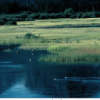
Wetlands
Source Institutions
Learners create a model of a wetland to observe how it absorbs and filters water from the environment.

Variation Game
Source Institutions
In this set of outdoor games, learners play the role of monkeys that are trying to get enough resources (food, shelter, and space) to survive.
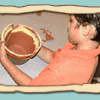
Piecing It All Together
Source Institutions
Learners create their own piece of history by decorating, shattering, and piecing together a flowerpot "artifact".

Rubber Blubber Gloves
Source Institutions
In this experiment, learners work in pairs to create two gloves -- one that contains a layer of shortening (blubber) inside, and one that doesn't.
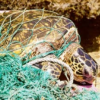
All Tangled Up
Source Institutions
In this activity on page 60, learners examine and simulate wildlife entanglement by experiencing what it might be like to be a marine animal trapped in debris.

Forensic Science: Hair Sample Investigation
Source Institutions
This activity (on page 2 of the PDF under SciGirls Activity: Forensics) is a full inquiry investigation into how hairs from a crime scene are matched to suspects.
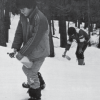
Scent Tracking
Source Institutions
In this wintertime outdoor activity, learners role play wolves tracking their prey by following scented trails.
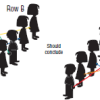
Target Recognition and Synapse Formation During Development
Source Institutions
In this activity about neuron/target muscle recognition (page 44 of the PDF), learners arranged in two rows facing away from each other use string to simulate neural development.
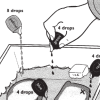
Spill Spread
Source Institutions
In this simulation, learners explore how ocean currents spread all kinds of pollution—including oil spills, sewage, pesticides and factory waste—far beyond where the pollution originates.
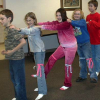
The Bug Walk
Source Institutions
In this fun group activity involving music and movement, learners are introduced to the idea that many insects walk by using their legs to create "alternating triangles." Learners sing the "Ants Go Ma
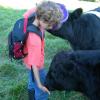
Virtual Farm Management
Source Institutions
This activity (located on page 3 of the PDF under GPS: Farm Animals Activity) is a full inquiry investigation into raising livestock.

Base Station Walk-Back
Source Institutions
In this activity, learners will train to improve lung, heart, and other muscle endurance as they walk a progressive, measured distance.

Don't Stop for Hitchhikers
Source Institutions
In this activity, learners role-play the part of lake inhabitants and the aquatic exotics who displace the native species.
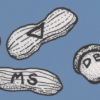
Acorns
Source Institutions
In this outdoor game, learners play the roles of gray or red squirrels gathering and storing a supply of food in "fall" and recovering enough of them to survive the "winter." Learners carry bags repre

Seas in Motion
Source Institutions
In this outdoor, beach activity, learners use tennis balls, water balloons and other simple devices to investigate the movement of waves and currents off a sandy beach.

Wolf Limiting Factors
Source Institutions
In this activity, learners simulate a wolf and its habitat and observe what happens when the limiting factors change over time.

The Carbon Cycle and its Role in Climate Change: Activity 2
Source Institutions
In this activity (on page 7), learners explore the meaning of a "carbon sink." Using simple props, learners and/or an educator demonstrate how plants act as carbon sinks and how greenhouse gases cause

Water "Digs" It!
Source Institutions
In this activity, learners investigate soil erosion. Learners set up a simulation to observe how water can change the land and move nutrients from one place to another.

The Best Dam Simulation Ever
Source Institutions
This online simulation game explores the different consequences of water levels on the Columbia River in the Pacific Northwest.
